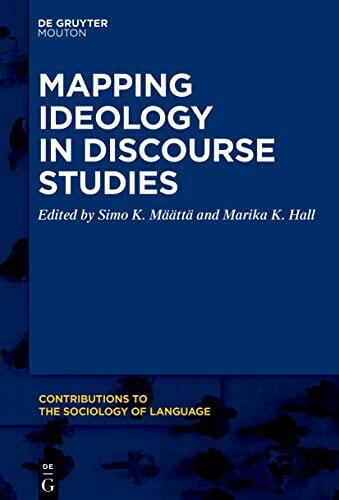
Ideology and Discourse: Mapping Ideology in Discourse Studies
لا توجد تقييمات بعد
Romance
تنسيق
غلاف صلب
صفحات
350
لغة
الإنجليزية
منشور
May 23, 2022
الناشر
De Gruyter Mouton
رقم ISBN-10
1501519956
رقم ISBN-13
9781501519956
الوصف
This volume delves into the intricate relationship between ideology and discourse, providing readers with a comprehensive framework for understanding how ideologies shape, and are shaped by, various forms of communication. The authors deftly explore the ways in which social beliefs and values are woven into language, illuminating the hidden power dynamics and assumptions that often go unnoticed in everyday discourse.
Määttä and Hall draw on a diverse array of case studies to illustrate their theoretical insights, presenting a balanced mix of empirical research and critical analysis. Through their examination of different contexts, they reveal how ideologies manifest in public debates, institutional communication, and media representations, highlighting the nuances that emerge at both macro and micro levels.
The book encourages critical reflection, inviting readers to investigate their own discursive practices and the ideologies that underpin them. By challenging conventional understandings of language, it serves as a valuable resource for scholars and students alike who are eager to engage with contemporary issues of power, identity, and representation.
Ultimately, this work is an essential contribution to the field of discourse studies, forging connections between theory and practice while opening up new avenues for research and discussion. It stands as both a critical resource and a call to action for those seeking to navigate the complex landscape of ideology in language.
Määttä and Hall draw on a diverse array of case studies to illustrate their theoretical insights, presenting a balanced mix of empirical research and critical analysis. Through their examination of different contexts, they reveal how ideologies manifest in public debates, institutional communication, and media representations, highlighting the nuances that emerge at both macro and micro levels.
The book encourages critical reflection, inviting readers to investigate their own discursive practices and the ideologies that underpin them. By challenging conventional understandings of language, it serves as a valuable resource for scholars and students alike who are eager to engage with contemporary issues of power, identity, and representation.
Ultimately, this work is an essential contribution to the field of discourse studies, forging connections between theory and practice while opening up new avenues for research and discussion. It stands as both a critical resource and a call to action for those seeking to navigate the complex landscape of ideology in language.